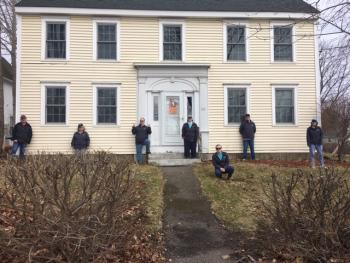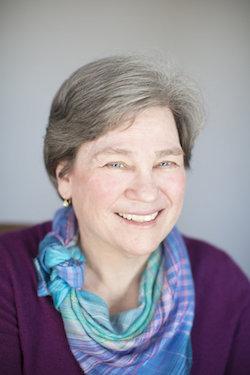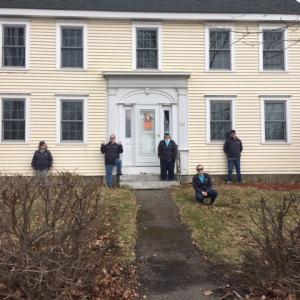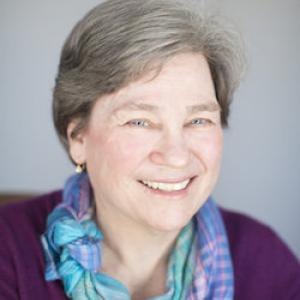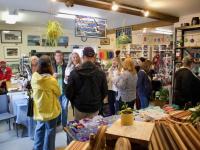Sheltering in place at Coastal Opportunities
“Wash, wash, wash. Clean, clean, clean.”
That is Gail Varga’s mantra as Coastal Opportunities navigates the unique challenges of housing adults with intellectual disabilities during the COVID-19 pandemic.
As the organization’s manager of residential, community and vocational services, Varga is keeping a close eye on the organization’s eight residences in Camden, Rockport, Rockland, Owls Head and Thomaston. So is her team of residential supervisors, who are working hard to ensure the safety and well-being of residents and staff members.
“We are constantly washing our hands, putting gloves on and off, sanitizing keyboards, phones, tables, everything,” says Shelly Henry, who supervises the Vera Brandes Home, in Thomaston. “We did a lot of this before but not as much as we do now. And we’ve split up the dining table into two tables to provide more space.”
Henry’s staff, as with all the homes, take their temperatures before reporting for work and are sticking to the basics when they’re off duty.
“They’re going home, staying home, or going to the grocery store. They’re not socializing.”
The home’s six residents are sticking to the basics, too, and they deeply miss the face-to-face connections they normally have with their families, neighbors, and friends.
“Our six residents are all verbal and mobile, and they are used to being out and about,” Henry says. “One of the biggest things we see now is just the mental health part of this. We are constantly looking for new things to do. They are using screens a lot more – that’s a plus and a minus — but they’ve also been doing yard work, getting some exercise, and sometimes having short visits out on the porch with their parents – staying six feet apart.
Samantha, a resident, says she misses seeing her “Coastal” friends, her family, the staff at the grocery store where she likes to buy snacks, and coworkers at her part-time job. “To pass the time, I use the computer. But we do puzzles. We play games. We go for walks. None of us could go home to our families on Easter, but we dyed Easter eggs and had an Easter egg hunt and a big dinner. They made it decent for us.”
Shelly adds that the home’s neighbors have helped brighten residents’ lives: “The community has been amazing. We have lots of nice neighbors. If they walk by, they might stop and talk to us. Volunteers have been bringing in art supplies, and a good friend of the home donated a Roku stick to give us access to more programs. That’s a huge help to our sports fans, who are desperately missing the games they used to watch on TV.”
Still, everyone yearns for more outdoor time: “At this time of year we’d be gearing up for a Sea Dogs game and the local games – and we are looking forward to some picnics as the weather gets better.” For now, outings are limited to rides in the home’s 10-seater van, with only two or three residents at a time for the sake of social distancing. The many other activities residents enjoy – from recreational programs to community service – are on hold.
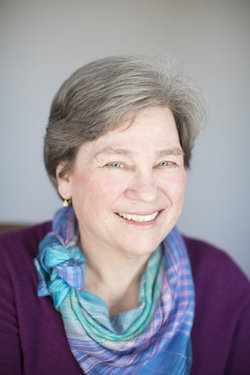
in Camden since 1994.
At the Katherine Brown Home in Rockland, which houses clients with both physical and intellectual disabilities, day program activities are happening in-house. Resident Supervisor Sherry Hilt explains that residents would ordinarily travel to the Olive Coates Center in Camden for their activities. But these days the staff work with them at home every weekday morning.
The residents moved into this new facility from their previous home in Hope on March 13 — one day before Maine declared the coronavirus shutdown. Being in a new, spacious building has softened the impact of having to stay indoors.
“I’m so glad we were here when the shutdown happened,” says Hilt. “There is plenty of room here, and our people have enjoyed exploring their new space. It’s such a beautiful, clean place to be – and we are keeping it that way.”
Nevertheless, being confined is getting old. “I think some of the residents are getting a little antsy. They want to go out for rides…even those who never wanted to go out want to go out now! Visits aren’t happening anymore, and one of the women was especially sad about that. I suggested that her family write letters. She loves that. We can’t accept care packages anymore, but the letters make her very happy.”
Varga reports that technology is helping her team stay in touch with each other and offers some alternatives to in-person appointments. Although dental and medical appointments are postponed, some clients can meet with their case managers via Zoom.
“I guess we will all get a lot more tech-savvy,” she observes. “I am hoping there will be some silver linings out of all this.”
Don’t we all!
Event Date
Address
United States


